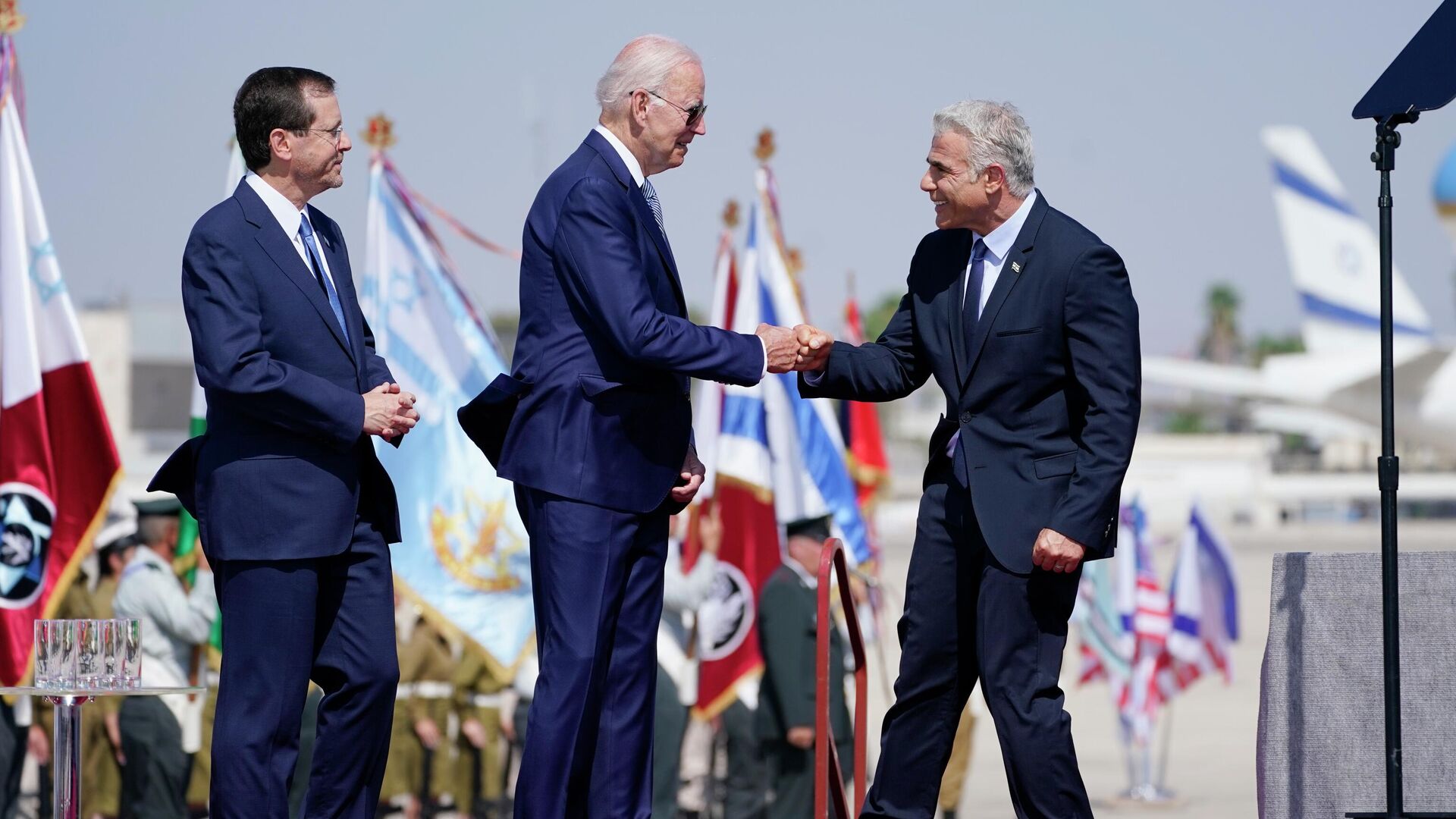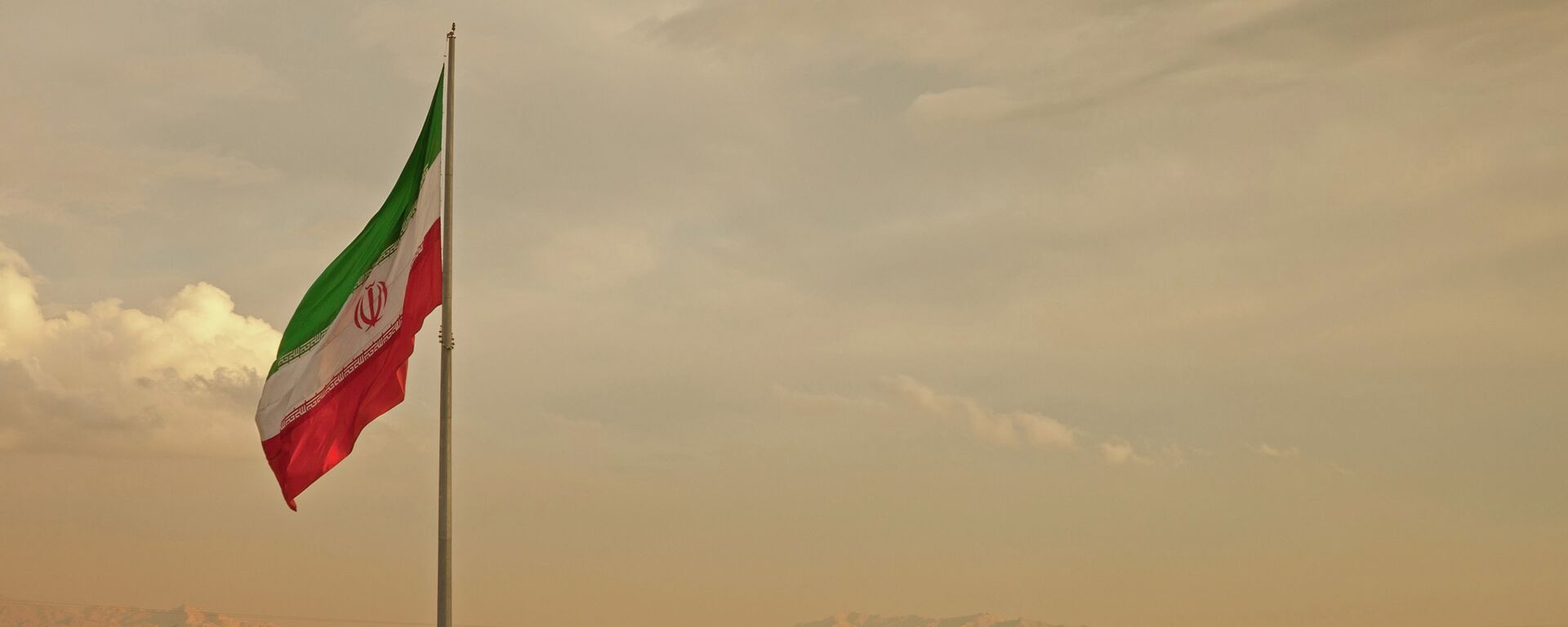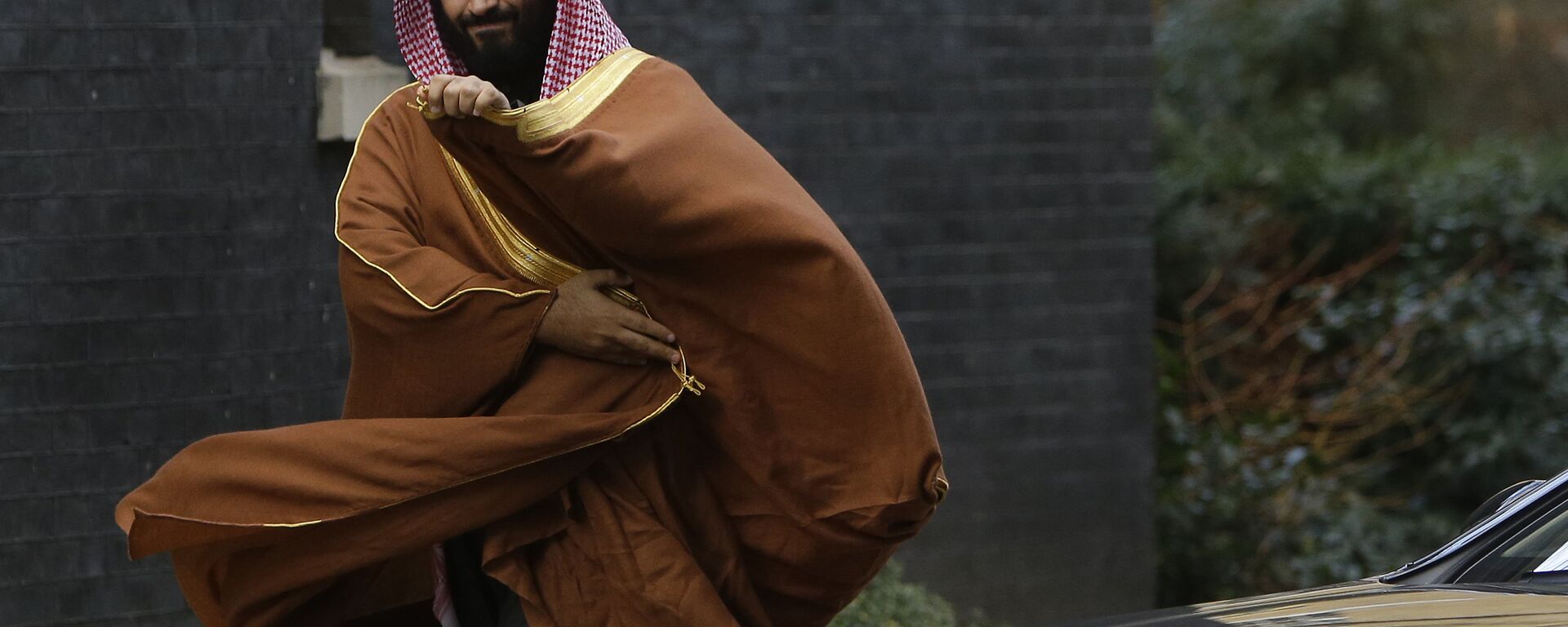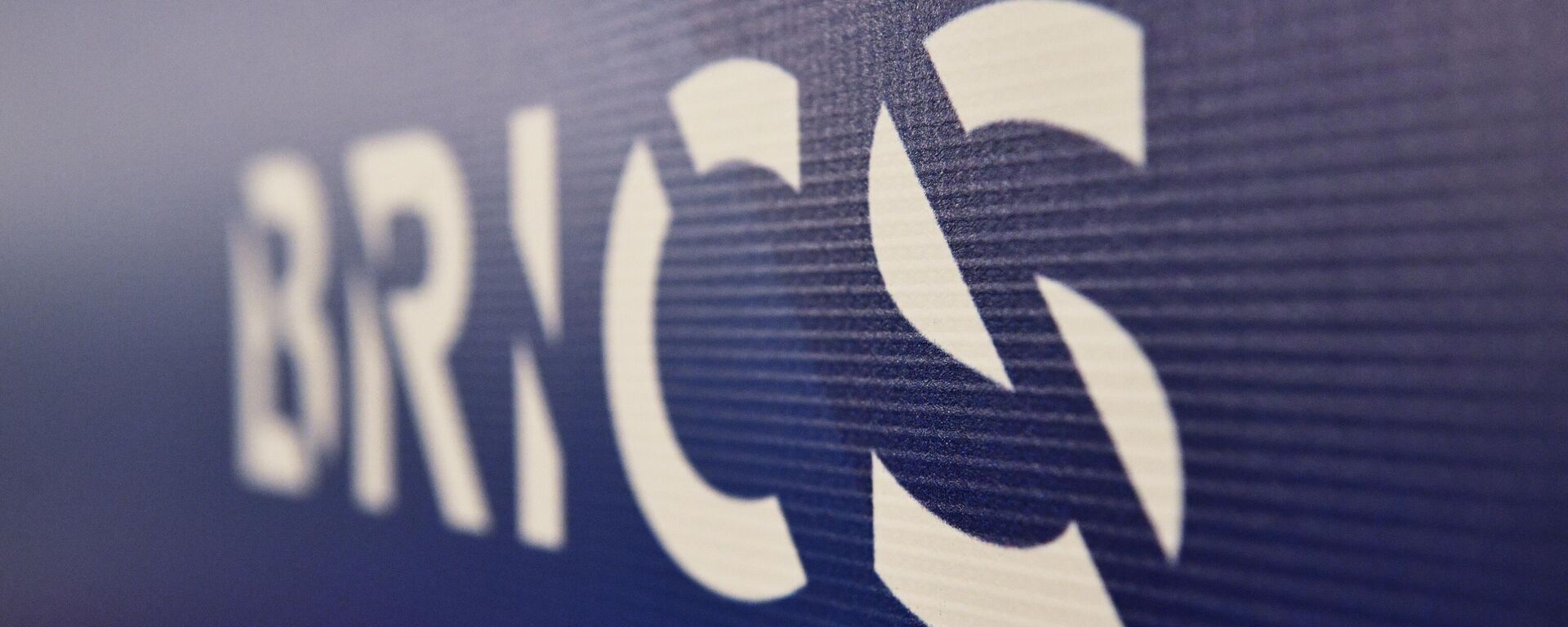https://sputnikglobe.com/20220715/why-iran-and-saudi-arabia-came-to-forefront-during-biden-lapid-talks-1097360331.html
Why Iran and Saudi Arabia Came to Forefront During Biden-Lapid Talks
Why Iran and Saudi Arabia Came to Forefront During Biden-Lapid Talks
Sputnik International
US President Joe Biden and Israeli Prime Minister Yair Lapid signed the joint "Jerusalem Declaration," with Washington vowing to use “all elements in its... 15.07.2022, Sputnik International
2022-07-15T17:10+0000
2022-07-15T17:10+0000
2022-08-08T10:07+0000
us
middle east
saudi arabia
israel
yair lapid
joe biden
russia
sanctions
sputnik explains
https://cdn1.img.sputnikglobe.com/img/07e6/07/0d/1097282959_0:56:3072:1784_1920x0_80_0_0_e2ea0de601f88379cb13201aafaf99f2.jpg
"The big issue now in the Middle East is Iran," says Retired Brig. Gen. Meir Elran, a senior research fellow and head of three security programs at the Institute for National Security Studies (INSS) in Tel Aviv. "Beforehand, different other issues were as important, for example, the fight against terrorism, even the Palestinian issues and other things were prominent. Nowadays it's Iran, Iran, and Iran."From day one of Joe Biden's presidency, the US administration has signaled willingness to revive the 2015 Joint Comprehensive Plan of Action (JCPOA), which was torn apart in 2018 by then-President Donald Trump despite Tehran observing all the provisions of the nuclear accords.The ongoing indirect talks between Washington and Tehran revolve around the conditions of the deal's restoration. The Biden administration wants Iran to adhere to the initial restrictions of the deal: following the US demarche in 2018, the Islamic Republic has been gradually loosening the JCPOA terms on uranium enrichment starting from July 2019. In response, Tehran demands that the US lift its unilateral "maximum pressure" sanctions first.Meanwhile, Israeli prime ministers, starting with Benjamin Netanyahu and ending with Yair Lapid, have repeatedly voiced concerns about Iran's nuclear program, claiming that Tehran is striving to obtain nuclear weapons, something that the Iranian leadership denies.During the high-profile talks in Jerusalem, Lapid once again raised the Iran nuclear issue, insisting on a potential military solution. "The only way to stop them is to put a credible military threat on the table," PM Lapid told Biden. For his part, Joe Biden emphasized that "diplomacy is the best way to achieve" the desired outcome.Once a renewed US-Iranian nuclear deal is signed, Israel will be to some extent deprived of "legitimacy" to take military action against Iran in order to destroy the critical elements in its nuclear program, according to Inbar. Furthermore, if Israel decides on military action after the US inks the nuclear agreement with Iran, tensions will grow between Washington and the Jewish state, he warns.US-Russia Competition in Middle EastThe Iran issue is much broader than the country's much-discussed nuclear program, emphasizes Meir Elran, who believes that the Islamic Republic is now at the center of a US-Russia competition in the Middle East.Russian Putin is expected to hold a trilateral meeting with the leaders of Iran and Turkey, within the framework of the Astana format established in 2015 for Syria-related talks. He is also due to have a separate meeting with Turkish President Recep Tayyip Erdogan.Elran suggests that the timing of Biden and Putin's tours to the Middle East is by no means coincidental and reflects a potential shift in the regional balance of power. The question is whether the US and its allies in the Middle East would be the most significant force pushing Iran to accept their demands, or whether Russia, Iran, and China, would have the upper hand in deciding "the fate of the Iranian drive forward in not only the nuclear issues, but also in other issues," the Israeli expert believes.Historically, the Middle East has never been Russia's priority. However, following Moscow's entry into the Syrian conflict at an official request from Damascus, Russia has emerged as a new power broker in the Middle East. Moscow has also maintained political and economic ties with the major regional players, including the Gulf States, and most notably, Saudi Arabia, as well as with Iran, Israel, and Turkey. The trend particularly manifested itself in a Russian-Saudi Arabia oil production deal concluded in September 2016 and the establishment of the informal OPEC+ alliance. Moscow's geopolitical progress has prompted some observers to suggest that Russia is filling the power gap left by the US, which is gradually reducing its presence in the Middle East.Saudi Arabia is Key to Israeli-Arab NormalizationThe Biden administration is seeking to solidify the US "axis" of allies in the Middle East and capitalize on Donald Trump's Abraham Accords, which marked a normalization of ties between Israel, the United Arab Emirates (UAE), and Bahrain, as well as Morocco and Sudan.On 15 July, Riyadh lifted the Israel-Saudi flight ban ahead of Biden's visit to the Gulf kingdom. Biden said on Friday that Saudi Arabia's decision to allow Israeli airlines to use its airspace "can help build momentum toward Israel's further integration into the region." For his part, Israeli Prime Minister Yair Lapid praised the Saudi leadership's decision and called it "the first step." According to Axios, the historic move came after Israel "approved the parameters of a deal around two strategic Red Sea islands [Tiran and Sanafir] which were of high importance to the Saudis." The deal had been quietly negotiated by the US for months, the media outlet specifies.Nonetheless, the process of normalization between Israel and Saudi Arabia and some other Arab countries "will be slow and under the radar," forecasts Meir Elran.Saudi Arabia is a key to the progress of Israeli-Arab normalization, according to the retired brigadier general. Elran believes that the pace of this process could be decided after Biden's talks in Jeddah, where the US president will discuss not only the Israeli issue, but also the fate of the 2016 Saudi-Russian deal on oil extraction limits. Washington wants Riyadh to produce more oil in order to suppress crude prices, which further skyrocketed after the US and its allies slapped energy sanctions on Russia over the latter's special operation in Ukraine."And we'll see what happens there," the Israeli scholar says. "And it has to do also in the context of the other very important issue, very important internationally, for the global arena, which has to do with oil prices and the production of oil by the Saudi Arabian kingdom. And this is another issue that will be dealt with over the talks with the Saudis by the United States president in the next few days."
https://sputnikglobe.com/20220712/iran-blasts-israel-ahead-of-biden-trip-suggests-arab-nato-initiative-doomed-to-fail-1097247501.html
https://sputnikglobe.com/20220710/biden-saudi-arabia-trip-important-for-countering-russia-china--keeping-us-leadership-afloat-1097141603.html
https://sputnikglobe.com/20220619/why-biden-will-have-a-hard-time-trying-to-persuade-saudi-arabia-to-boost-oil-output-1096458780.html
https://sputnikglobe.com/20220714/saudi-arabia-egypt--turkey-may-join-brics-very-soon-forum-chair-anand-says-1097295418.html
saudi arabia
israel
russia
Sputnik International
feedback@sputniknews.com
+74956456601
MIA „Rossiya Segodnya“
2022
News
en_EN
Sputnik International
feedback@sputniknews.com
+74956456601
MIA „Rossiya Segodnya“
Sputnik International
feedback@sputniknews.com
+74956456601
MIA „Rossiya Segodnya“
us, middle east, saudi arabia, israel, yair lapid, joe biden, russia, sanctions, sputnik explains
us, middle east, saudi arabia, israel, yair lapid, joe biden, russia, sanctions, sputnik explains
Why Iran and Saudi Arabia Came to Forefront During Biden-Lapid Talks
17:10 GMT 15.07.2022 (Updated: 10:07 GMT 08.08.2022) US President Joe Biden and Israeli Prime Minister Yair Lapid signed the joint "Jerusalem Declaration," with Washington vowing to use “all elements in its national power” to prevent Iran from obtaining nuclear weapons. The leaders also praised Riyadh's historic lifting of its Israeli flight ban.
"The big issue now in the Middle East is Iran," says Retired Brig. Gen. Meir Elran, a senior research fellow and head of three security programs at the Institute for National Security Studies (INSS) in Tel Aviv. "Beforehand, different other issues were as important, for example, the fight against terrorism, even the Palestinian issues and other things were prominent. Nowadays it's Iran, Iran, and Iran."
From day one of Joe Biden's presidency, the US administration has signaled willingness to revive the 2015 Joint Comprehensive Plan of Action (JCPOA), which was torn apart in 2018 by then-President Donald Trump despite Tehran observing all the provisions of the nuclear accords.
The ongoing indirect talks between Washington and Tehran revolve around the conditions of the deal's restoration. The Biden administration wants Iran to adhere to the initial restrictions of the deal: following the US demarche in 2018, the Islamic Republic has been gradually loosening the JCPOA terms on uranium enrichment starting from July 2019. In response, Tehran demands that the US lift its unilateral "maximum pressure" sanctions first.
Meanwhile, Israeli prime ministers, starting with Benjamin Netanyahu and ending with Yair Lapid, have repeatedly voiced concerns about Iran's nuclear program, claiming that Tehran is striving to obtain nuclear weapons, something that the Iranian leadership denies.
During the high-profile talks in Jerusalem, Lapid once again raised the Iran nuclear issue, insisting on a potential military solution. "The only way to stop them is to put a credible military threat on the table," PM Lapid told Biden. For his part, Joe Biden emphasized that "diplomacy is the best way to achieve" the desired outcome.
"[I]t's quite clear that Israel and the United States don't see eye to eye on how to proceed vis-a-vis Iran," says Professor Efraim Inbar, president of the Jerusalem Institute for Strategy and Security (JISS). "The Americans are not even willing to declare a red line to Iranian activities, something that Israel desires to see."
Once a renewed US-Iranian nuclear deal is signed, Israel will be to some extent deprived of "legitimacy" to take military action against Iran in order to destroy the critical elements in its nuclear program, according to Inbar. Furthermore, if Israel decides on military action after the US inks the nuclear agreement with Iran, tensions will grow between Washington and the Jewish state, he warns.
US-Russia Competition in Middle East
The Iran issue is much broader than the country's much-discussed nuclear program, emphasizes Meir Elran, who believes that the Islamic Republic is now at the center of a US-Russia competition in the Middle East.
"I think that the most important thing… is the fact that we have two presidential visits to the Middle East," says the retired brigadier general. "They're one week after the other. We have now the visit of President Biden to Israel and to Saudi Arabia. And we have another one next week coming up, with President Vladimir Putin going to Iran."
Russian Putin is expected to hold a trilateral meeting with the leaders of Iran and Turkey, within the framework of the Astana format established in 2015 for Syria-related talks. He is also due to have a separate meeting with Turkish President Recep Tayyip Erdogan.
Elran suggests that the timing of Biden and Putin's tours to the Middle East is by no means coincidental and reflects a potential shift in the regional balance of power. The question is whether the US and its allies in the Middle East would be the most significant force pushing Iran to accept their demands, or whether Russia, Iran, and China, would have the upper hand in deciding "the fate of the Iranian drive forward in not only the nuclear issues, but also in other issues," the Israeli expert believes.
Historically, the Middle East has never been Russia's priority. However, following Moscow's entry into the Syrian conflict at an official request from Damascus, Russia has emerged as a new power broker in the Middle East. Moscow has also maintained political and economic ties with the major regional players, including the Gulf States, and most notably,
Saudi Arabia, as well as with Iran, Israel, and Turkey. The trend particularly manifested itself in a Russian-Saudi Arabia oil production deal concluded in September 2016 and the establishment of the informal OPEC+ alliance. Moscow's geopolitical progress has prompted some observers to suggest that Russia is filling the power gap left by the US, which is gradually reducing its presence in the Middle East.
Saudi Arabia is Key to Israeli-Arab Normalization
The Biden administration is seeking to solidify the US "axis" of allies in the Middle East and capitalize on Donald Trump's Abraham Accords, which marked a normalization of ties between Israel, the United Arab Emirates (UAE), and Bahrain, as well as Morocco and Sudan.
"Obviously Israel is interested in expanding the Abraham Accords to additional Arab countries," says Efraim Inbar. "We recently saw a warming in Saudi-Israeli relations and more interactions in the economic area and more interactions on the official level. But it's not clear yet if Saudi Arabia is ripe yet for adopting a similar posture like the United Arab Emirates and Bahrain."
On 15 July, Riyadh lifted the Israel-Saudi flight ban ahead of Biden's visit to the Gulf kingdom. Biden said on Friday that Saudi Arabia's decision to allow Israeli airlines to use its airspace "can help build momentum toward Israel's further integration into the region." For his part, Israeli Prime Minister Yair Lapid praised the Saudi leadership's decision and called it "the first step."
According to Axios, the historic move came after Israel "approved the parameters of a deal around two strategic Red Sea islands [Tiran and Sanafir] which were of high importance to the Saudis." The deal had been quietly negotiated by the US for months, the media outlet specifies.
Nonetheless, the process of normalization between Israel and Saudi Arabia and some other Arab countries "will be slow and under the radar," forecasts Meir Elran.
"[I]t's not very easy for Saudi Arabia to implement or to jump forward rapidly towards the open kind of normalization with Israel," says Elran. "And they do it slowly and discreetly. But the important thing, as far as the big picture is concerned, is that the collaboration between Israel and quite a few of the Arab countries is developing steadily and has been enhanced significantly with the Abraham Accords with the Emirates, Bahrain, with other Arab countries."
Saudi Arabia is a key to the progress of Israeli-Arab normalization, according to the retired brigadier general. Elran believes that the pace of this process could be decided after Biden's talks in Jeddah, where the US president will discuss not only the Israeli issue, but also the fate of the 2016 Saudi-Russian deal on oil extraction limits.
Washington wants Riyadh to produce more oil in order to suppress crude prices, which further skyrocketed after the US and its allies slapped energy sanctions on Russia over the latter's special operation in Ukraine.
"And we'll see what happens there," the Israeli scholar says. "And it has to do also in the context of the other very important issue, very important internationally, for the global arena, which has to do with oil prices and the production of oil by the Saudi Arabian kingdom. And this is another issue that will be dealt with over the talks with the Saudis by the United States president in the next few days."





